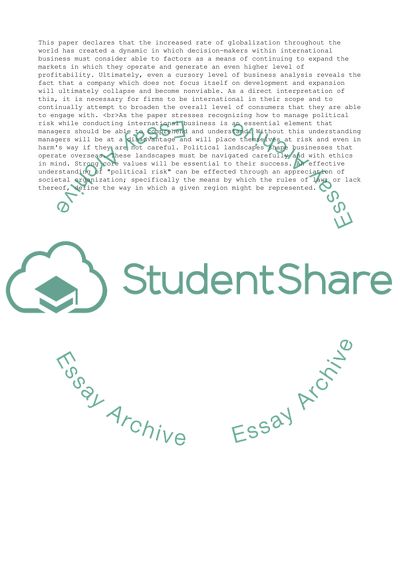Cite this document
(“Political Considerations and Managing Political Risk in an Ever Research Paper”, n.d.)
Political Considerations and Managing Political Risk in an Ever Research Paper. Retrieved from https://studentshare.org/business/1659695-political-considerations-and-managing-political-risk-in-an-ever-evolving-global-marketplace
Political Considerations and Managing Political Risk in an Ever Research Paper. Retrieved from https://studentshare.org/business/1659695-political-considerations-and-managing-political-risk-in-an-ever-evolving-global-marketplace
(Political Considerations and Managing Political Risk in an Ever Research Paper)
Political Considerations and Managing Political Risk in an Ever Research Paper. https://studentshare.org/business/1659695-political-considerations-and-managing-political-risk-in-an-ever-evolving-global-marketplace.
Political Considerations and Managing Political Risk in an Ever Research Paper. https://studentshare.org/business/1659695-political-considerations-and-managing-political-risk-in-an-ever-evolving-global-marketplace.
“Political Considerations and Managing Political Risk in an Ever Research Paper”, n.d. https://studentshare.org/business/1659695-political-considerations-and-managing-political-risk-in-an-ever-evolving-global-marketplace.


